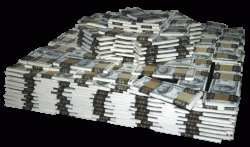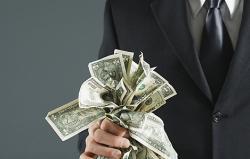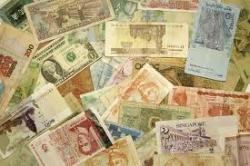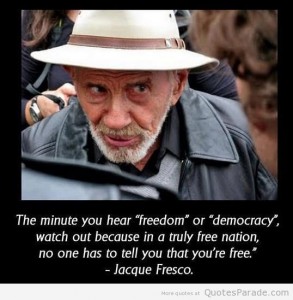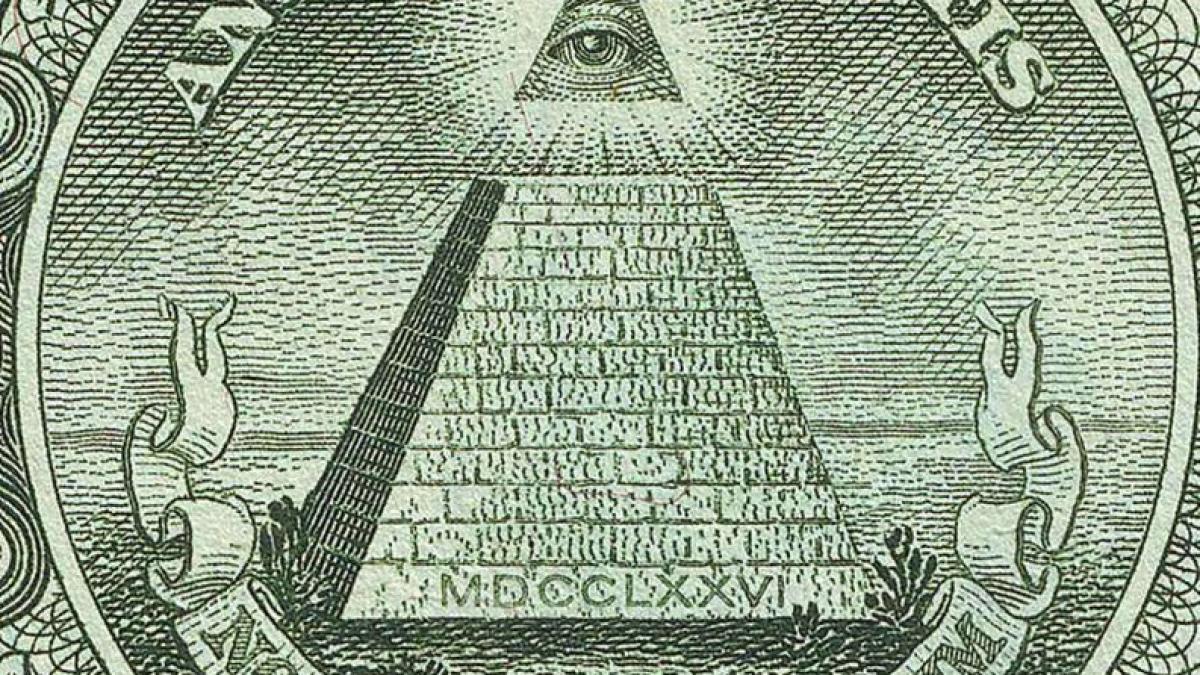Foray into an area reserved too: money - Part 4
I come back on a very good study by ATTAC independent group that not only returns to the basic historical that led us to the current economic situation of the entire planet, but was widely anticipated and explained the risks that have occurred since the book which dates from 2004 ... the group continues its observations and interventions, and I am personally quite agree with their conclusions, and history:
See beginning Part 1, Part 2, Part 3
III)
Exchange for sale - Value - Functions of money
Exchange sale
To understand how a changed economic exchange, return to the three ways to exchange goods or services. Either they are exchanged directly, immediately, without money, or we a commodity money is used as an input, is the currency of current credit is used.
*
Direct exchange without money, is the simplest way to exchange goods or services: Alice gives carrots to Brigitte and Brigitte gives apples to Alice, they agree on the amount to estimate the exchange is fair. Once this exchange took place, the two sides are even. Alice can eat apples and Bridget, his carrots. Such a direct exchange between people who know and who just by chance, what exchange, can not be applied to all economies since production there ceased to be handcrafted.
It remains possible that two extreme levels.
- Either between individuals who know enough to be trusted, then it is the exchange of services between friends or close relationships between that help.
It's a bit this "exchange of favors" that local trading systems (LETS) organize: their goal is to create exchange relationships who live nearby but who initially do not know . So they have no guarantee that the exchange is fair, hence the need for a true accounting of trade, leaving a total initiative to members of SEL. What is not simple.
- Either between countries, but it is then contracts trade involving preparation, negotiations on terms and conditions established by both parties under international jurisdiction ... which could be organized by World Organization the Exchange to ensure fairness.
*
The second method is to use via a commodity money.
Initially, Alice gives carrots to Brigitte, who, not having apples that seeks Alice gives him against another party well with a market value of which they feel both its value is equivalent to that cores provided by Alice.
After that first time, Brigitte can eat carrots. By cons, Alice has separated from his carrots and ends up with something she does not necessarily use, but it has the assurance of being able to swap later in the opposite direction, against, for example, apples equivalent value it needs. When she is found to be the second exchange, but only then also be able to eat leaves and apples.
So there is a period during which the person who received the commodity money instead of what he wanted is not really leaving because he has to find then the exchange against the goods it needs. Meanwhile, it may lose its currency being stolen, apple prices can increase, there may be a shortage of apples or just drop in the value of the intermediate object, such as it has become more abundant etc.
The intervention of a commodity money delays the time when the two parties exchanging are even. But until they have both a property that keeps real value, although it can vary.
This type of exchange has disappeared along with commodity money.
*
The third case involves the use of a receipt: Christian sells apples to Denise, who did not against party goods of equivalent value. She gives Christian a receipt in which it agrees to settle its debt to him later: Denise remains the debtor, the creditor remains Christian, they are not even.
Although Christian has provided its part, continues to affect sales as long as Denise has not produced the goods equivalent to receipt. It may require that its debtor owes. What guarantee is there that Denise on its commitment? It can be prevented to keep it by accident, die or lose his job, and may be dishonest and disappear without having paid his debt. And what guarantee is Christian that someone will agree to give value to that piece of paper that has no intrinsic value? And if he finds someone who accepts it, is it going to be good against the equivalent of what he has done?
The delay introduced by commodity money credit money, its lack of any link with a concrete richness clearly defined, not only adds a risk, because the question arises what is the commitment to pay, but also doubling it changes the nature of the transaction. On the one hand, one of the terms of trade has changed in nature, it is dematerialized and not the other. On the other hand, two interchanges now play different roles, one, the seller sells the other a real good (or service) and whose value is realized, when he receives the buyer or merchandise usable or equivalent service, so incontestable: the seller is paid by a symbolic promise for use later for an operation in the opposite direction remains uncertain.
Good (or service) that is not in one direction, from the producer to the consumer. Conversely it is a symbol that is transferred. There are more but exchange sale and purchase.
*
In fact exchange, we do not encounter in our economies, this buy-sell using credit money is now in circulation: the metal parts is worthless, tickets have never had intrinsic value and bank money is made by writing games.
The current system is a generalization of sale with credit money. There generalization debtor All nationals are debtors, since the law requires them to accept payment in the national currency and are thus obliged to honor this collective debt. There is widespread use of credit: anyone with that currency-IOU is a credit to the nation as it has a claim on it.
We shall return to the consequences of this system.
Value.
The value is a very general concept, as will the appointment of an abstract character when it is a moral value, that of a courageous act for example, or the talent shown by an artist, until to as concrete as the price per kilo of land measurement. It should at least distinguish the use value of the exchange.
The use value of a property is very personal because it is at the discretion of the one who is likely to use it and, as shown by Ricardo, each man has "a personal standard to assess the value of his pleasures "(27). It depends also on his environment and personal resources. As a result it is not possible to define a measure of the value in use.
The result is huge in human terms ... because when merchants, traders and economists use the word value, without specifying, as is common, each of us tends instinctively to think of the use value for himself. While it's always exchange value of a property is. And since the exchange between goods disappeared, this value has become, in fact, the price at which an item or service can be sold. So when we hear of value in economics, must result in market prices.
And ... wonder how it is priced. Because the reality is very far from the classical theory of the market that the price would be the manifestation of a balance struck in knowingly by the interaction of supply and demand from economic agents fully informed and acting always rational way. In fact, prices are posted by the seller, and there is rarely debate when a prospective client tries to make him change his price, it is called haggling instead of market. The confrontation between supply and demand occurs only on the capital markets (stock exchanges on debentures or that of raw materials) where the behavior of the players who set the course is the sheep of Panurge: relying on their impressions personal, they try to anticipate what they call the tendency for the sole purpose of profit, betting on the rise or fall on what will be, in their view, the behavior of others. There could be no more competent witness to describe this attitude as the Director of the Federal Reserve (the central bank of States of America): Alan Greenspan spoke of "irrational exuberance of the markets"!
So that the general utility the ethical purpose, human quality and other social aspects are considerations that are outside the concerns of those who set the "value" of an economic business or property.
Is not it time to think about how to fix the selling price of a property more seriously than punters ...?
(27) The Englishman David Ricardo (1772-1823), a pioneer in the study of classical economics is Originally from the "law" of land rent, and was the first to assert that human labor is the source of all value.
The functions of money.
To what extent can we still assume that any economics textbook states as the three functions of money?
*
The first function is to be a standard of value and unit of account because the money is interchangeable against a good, whatever it is. They say why money is a "general equivalent" which leads to not seeing standardization, loss of identity that entails when we know that this expression "property of any kind" includes time of human labor.
Indeed, and whatever its name, frank, grain of salt, or euro value unit ("UV"), the unit of account is, by definition, means to reduce everything to a common reference value. This leads to the absurd claim to measure because it is "on the same scale" as few comparable properties that a design by Leonardo da Vinci and several tons of rice.
There should at least distinguish what is measurable, quantifiable, and what does not. A ton of rice is probably a thousand times more than a single pound of this rice, but the quality of a painting or of a word processing software does not compare to that of a pastry.
These qualities can not be measured and it is not possible to compare objectively. Even with quantities of the same kind!
A standard, by definition, is universal and invariable. How can we use the term for the currency standard of value while even when the monetary standard was defined by a mass of gold, it has never ceased to vary, and formally? Then, let alone how to admit since it no longer exists at all real reference and exchange value our current euros, for example, varies at every turn? To measure wealth, it must be compared to a wealth of nature, as if to measure length, you need a length universally recognized and the meter has been defined for it. Imagine do we measure lengths with elastic meter?
Given what we have called on the evolution of the exchange, it would be more correct to say that the primary function of money is to be, not a standard of value, but a means of payment.
And if you wanted to stop mixing being and having, that is to say, distinguishing physical property and all that is imponderable, should the economy ceased to want everything to money, but only what is measurable.
*
We saw that in losing any intrinsic value and any reference to a real and available wealth, money has destroyed modern economies the exchange of goods or services. So unlike a very common expression, we are not, strictly speaking, in an exchange economy. Yet economics textbooks state that the second function of money is to be a medium of exchange and they add that the medium of exchange is "accepted everywhere and by everyone at all times in our monetary savings [that implying] that there is a social consensus and the belief that one can get at any time any property in exchange for money (28). "Confidence ... or obligation when the State imposes forced currency and legal tender of a national currency without reference value?
*
The third function of money would be a store of value. This implies that the currency is worth in order to keep it in reserve. Whereas, since it has ceased to have, she obviously stopped at the same time to be a reserve ...
It is obvious that for all the people who have low incomes, money is not a store of value because it is fast and completely spent!
As for those who earn more than they spend, they are quick to "put" their money ... just to keep it from losing its value!
Of the three traditional functions, it can be concluded that only the first survives, but only if it be stated by saying that money is purchasing power and that in the current system, it is constantly changing.
The other two, we held that when the economy is not made up of individual exchanges, the currency remains necessary for the transfer of goods between producers and consumers to manage, avoid waste, adapt production needs, etc. and also to allow altering the timing to make a purchase, provided the nominal value of the currency is guaranteed during this period.
*
But the current currency has, in fact, other functions, while the standard textbooks do not usually set out ...:
One of the other functions of the "modern" currency is that of "grow" by opening a credit to its customers, the bank offers loan to the owner of the means of sharing the financial markets under its credit against financial capital, for example against a title in shares or against bonds, likely to bring him a regular income. This shows that the current currency debt has the ability to produce an annuity, so it has the additional function of being a source of enrichment.
It will ask who paid the price of the annuity.
But that's not all. Because "we do lend to the rich", this feature enrichment plays in favor of the (already) rich, who can offer a "guarantee" to the credit agency, our currency has also building function inequalities.
*
Conclude that the current currency, capitalist and modern, is:
• for low income, only one currency consumer
• for high earners, in addition, a way to get rich without providing.
(28) See the book's introduction Plihon D. "Money and its mechanisms."
Sources: http://www.france.attac.org/
Continued from Part V
Yves Herbo


